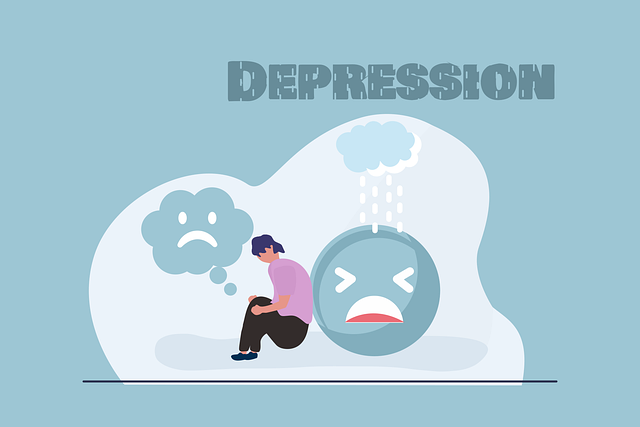Community outreach programs targeting adolescent mental health through tailored therapy and mindfulness practices prove effective in addressing anxiety, depression, and stigma. These initiatives offer early intervention, stress management techniques, and emotional intelligence development, empowering teens to take charge of their well-being. Incorporating evidence-based methods like Compassion Cultivation Practices (CCP), Social Skills Training, and Coping Skills Development ensures teen engagement and resilience. Strategic implementation involves community collaboration, volunteer training, and stakeholder partnerships for sustainability, with success measured through participation rates, mental health improvements, and qualitative feedback.
Community outreach programs play a pivotal role in addressing the mental health needs of adolescent teens. This article explores the implementation of such initiatives, focusing on mindfulness-based therapy as a powerful tool for teen well-being. We’ll delve into understanding the community’s unique needs, designing tailored mindfulness programs, and measuring their impact. By implementing effective outreach strategies, we can foster positive mental health outcomes for young individuals.
- Understanding the Need for Community Outreach Programs
- Designing Effective Therapy for Adolescent Teens with Mindfulness
- Implementing and Sustaining Outreach Initiatives
- Measuring Success and Impact on Teen Mental Health
Understanding the Need for Community Outreach Programs

In today’s fast-paced world, community outreach programs play a pivotal role in addressing the unique needs of adolescent teens. With increasing challenges related to mental health and social well-being, such programs offer a lifeline for young individuals who may be struggling with issues like anxiety, depression, or low emotional intelligence. By reaching out to these teens where they are—in their communities—outreach initiatives can provide much-needed therapy and mindfulness practices tailored to their age group. This proactive approach is essential in breaking down barriers and fostering early intervention, which can significantly impact a teen’s long-term mental health and overall resilience.
The implementation of community outreach programs goes beyond mere support; it involves equipping teens with valuable communication strategies and stress management techniques. These skills are crucial for navigating the complexities of adolescence and building emotional intelligence—a key factor in personal growth and success. By integrating mindfulness practices and teaching effective ways to cope with stress, these programs empower young people to take charge of their mental health and cultivate a sense of belonging within their communities.
Designing Effective Therapy for Adolescent Teens with Mindfulness

Designing effective therapy for adolescent teens involves incorporating mindfulness practices tailored to their unique needs and developmental stage. Mindfulness, a cornerstone of modern therapeutic approaches, equips teens with essential coping skills and enhances emotional regulation. By integrating techniques such as Compassion Cultivation Practices (CCP) into therapy sessions, professionals can foster a sense of self-awareness and empathy in young individuals, enabling them to navigate the challenges of adolescence with greater resilience.
In addition to mindfulness, Social Skills Training and Coping Skills Development are valuable components. These programs teach teens effective communication strategies, help them build positive relationships, and provide tools to manage stress and difficult emotions. Tailoring these interventions to be engaging and relatable for adolescents is crucial in ensuring their success and fostering a supportive environment that promotes growth and healing.
Implementing and Sustaining Outreach Initiatives

Implementing and Sustaining Outreach Initiatives requires a multifaceted approach tailored to engage and empower communities. Effective Community Outreach Program Implementation starts with identifying specific needs, such as promoting emotional well-being and reducing the stigma associated with mental illness among adolescent teens. Incorporating evidence-based practices like mindfulness can significantly enhance these efforts. Regular training sessions for volunteers and community leaders ensure consistent delivery of services that are both impactful and culturally sensitive.
Sustainability hinges on fostering a sense of ownership within the community, encouraging long-term participation. This involves regular feedback mechanisms, where beneficiaries share their experiences and suggest improvements. Collaborating with local schools, healthcare providers, and youth organizations can also help integrate these initiatives into existing support structures. By seamlessly blending therapeutic techniques like mindfulness with Mental Illness Stigma Reduction Efforts, communities can create a supportive environment that nurtures adolescent teens’ emotional health and overall well-being.
Measuring Success and Impact on Teen Mental Health

Measuring the success and impact of community outreach programs on teen mental health is crucial for understanding their effectiveness. By incorporating therapeutic approaches like mindfulness, these initiatives can significantly contribute to the well-being of adolescent teens. Programs that focus on self-esteem improvement and mental health awareness often foster resilience building within young individuals.
Evaluating outcomes can involve tracking improvements in participation rates, engagement in therapy sessions, and changes in self-reported mental health indicators. Additionally, qualitative feedback from both teens and community members provides valuable insights into the perceived benefits of these programs. This data-driven approach ensures that initiatives are tailored to address specific needs, enhancing their overall impact on teen mental health.
Community outreach programs, particularly those focusing on mindfulness-based therapy for adolescent teens, have proven to be transformative tools in enhancing mental health. By implementing and sustaining these initiatives, we can create a supportive environment that addresses the unique needs of young individuals. Measuring success through measurable outcomes highlights the impact on teen mental health, making it a powerful strategy to improve overall well-being. This holistic approach ensures that future generations are equipped with the necessary tools to navigate life’s challenges effectively.








